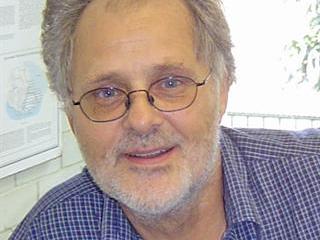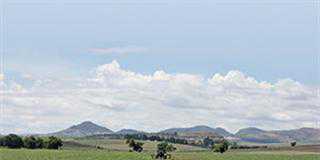
How do you view the great Karoo shale debate?
The Karoo is a unique semi-desert that should not be ruined, but it is also a place of intense poverty. This is not the first challenge the ‘natives of the Karoo’ have endured. Heated debates, between those who fret about the environment and those who regard Karoo shale as delivering new solutions to energy and progress, are part of a wider ethical debate about looming global environmental challenges – climate change – building up to what has ironically been called ‘a perfect moral storm’.
A gap must be bridged over at least the next four decades to facilitate the changeover from energy production by heavy carbon dioxide polluters (coal and oil) to renewables (solar, wind, wave, perhaps hydrogen, nuclear and, who knows, eventually artificial photosynthesis). Shale gas may be a bridging fuel towards the renewables.
But, we still don’t know exactly where the gas is (it could be under a farm or under a township) or how much of it there is and how it can be safely harvested. If this country is to benefit from a possible shale gas bonanza – there is no doubt about the immense potential economic and social returns – it must evaluate the options realistically.
And for this it needs to build a new infrastructure that can dynamically monitor exploration activities on a number of fronts, by means of independent research and evaluation teams. We have no independent expertise in gas shales, fracking or horizontal drilling. We have no integrated groundwater and gas units at our institutions or national and provincial agencies that can test if fracking products are entering subsurface water reservoirs and affecting public health.
Without the help of expensive overseas consultants, we could not enforce banning orders. Only the largest exploration companies in South Africa have 3D seismic equipment and the money to run it. There is no national instrument pool to monitor seismic pulses caused by fracking. And there is a severe lack of academic training of geophysicists to use such instruments and interpret the data.
We cannot undertake rare gas analyses to monitor leakages and we barely have a minimum laboratory capacity in terms of isotopic fingerprinting of methane or radiogenic isotopes. A proper cost-benefit valuation of the resource can be made only once the expenditure on a regulatory and operational network is factored in.
Shale gas extraction without reliable independent policing is not an option for South Africa. There is no reason why we cannot strive to achieve this. However, unless systematic and independent baseline data on seismicity and groundwater quality, including isotopic compositions collected well before drilling operations start in the Karoo, are made available for public scrutiny, environmental safety and scientific knowledge, public confidence will remain compromised.
What’s happening elsewhere in the world?
During a recent tour through Canada and the US, it struck me that concerns about shale gas exploitation are as emotional, and at times as irrational, as they are in South Africa. Yet there are fundamental differences that apparently help to organise the debate. One is closely tied to public education, access to modern communication, bandwidth and networks. None of these are in place throughout South Africa.
In the US, the debates are constructive; environmental issues are debated online daily across a wide range of websites. Reliable scientific information and critical evaluation sustains the discourse in North America at a sound level, facilitated by a well-trained workforce in relevant fields. This enables sharp independent ‘watchdogs’ to monitor and sound alarm bells. Active responses are quick and professional. In South Africa, the debate is more confrontational, perhaps because of a lack of technical expertise and innovation. We move mostly in a mode of ‘tit for tat’.
Academic studies that show some of the dangers are criticised as unscientific by industry representatives, while government agencies are powerless to evaluate the arguments. Research on shale gas gets a one-sided response from environmentalists when it does not suit a particular agenda. There is an apparent lack of cohesion and a lack of genuine community-oriented interest in many discourses. Furthermore, our academic and research institutions do no work at the cutting edge of this rapidly evolving science and technology.
We lack the capacity to gather the data and to evaluate the potential for techniques such as hydraulic fracturing to affect contamination of underground sources of drinking water by injecting hydraulic fracturing fluids into shale gas wells, or its potential effect on astronomical observatories. This requires a new phase of science and technology investment. So we must base our debates on examples from North America and Europe.
Can we ever catch up?
South Africa has a great pool of ecologists, biologists and other Karoo specialists who could monitor and advise on surface effects, plus a world-class research unit that could track deep subsurface bacterial activities and bio-fouling. But these are not the people that Shell has chosen to help with its environmental management plan.Companies are secretive and do not share their data or concerns with the wider community.
Therein lies the crux of how companies such as Shell apparently fail to understand why the public and environmental lobbies mistrust their motives and plans. In my conversations with Shell’s employees, some of whom are extremely competent scientists and technicians, I found them unable to listen with the care it requires to understand the deep anxieties and needs of those living in the Karoo.
Instead, Shell has hired a consultancy – Golder Associates – to do this for them. Golder did a poor job of considering the real interests of the inhabitants. It appears to be unaware of existing environmental legislation and the extensive conservation planning work that has been undertaken in this very area. This is inexcusable in South Africa, which is teeming with excellent and qualified ecosystem and geosystem experts. Still, at least Shell has shown a measure of transparency in facing the public square on. Others with vested interests have shied away from that.
Under what circumstances should Shell and others be permitted to carry out the exploration they need to assess the risk of possible shale gas exploitation?
We need to balance the costs of keeping valued wealth in the ground against eradicating poverty and absorption of the marginalised in the flanking townships; to stave off potential land invasions or re-appropriation; and to help reduce potential climate change. Of course, the gas may not necessarily do anything for the poor – ‘trickle down’ is not one of South Africa’s strengths.
The energy industry must learn to work with government agencies, environmental organisations, academic research groups and local communities to develop innovative technologies and practices that can reduce the environmental risks and impacts associated with shale gas development. It should stimulate continued study and improved communication of the environmental risks associated with shale gas development to allow society to make well informed decisions about its energy future.
Our universities are not focused on the moral issues of energy and the environment. But the lessons for the academic community, researchers and bureaucrats are clear: Do the homework and focus on the grand challenges. Government needs to provide the funds for centres of excellence where such work can be done in earnest.
Shell too should be held accountable to our nation’s needs and, like the energy giant Petrobras in Brazil, should be required to redistribute a more significant slice of the company’s profits into educational and regulatory institutions. Shell could leave a legacy of trained African professionals to continue the work.
But to ban all potential fracking at this stage, as environmentalists propose, is the kind of thing we should think about more deeply, if alleviating poverty and climate change, and avoiding social unrest, are agreed targets. It is difficult to know exactly how much information we need to justify the exploitation of shale gas, and to assess the risks of fracking to the quality of rural life and subterranean water resources.
Contact Prof De Wit at [email protected] or visit www.aeon.org.za.
See article in Farmer’s Weekly of 6 & 13 April (pg 22) ‘Shell publishes Karoo groundwater atlas’













